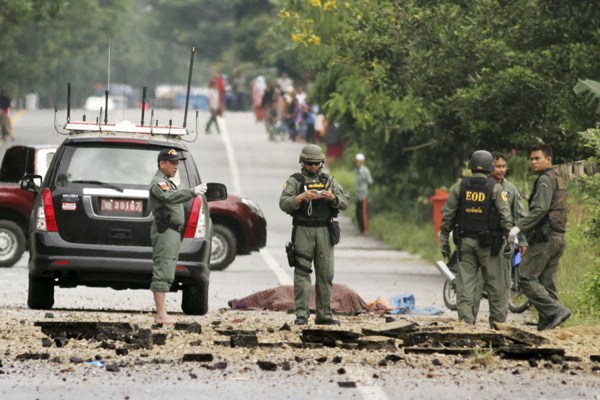On Dec. 1, during Thai Prime Minister Prayuth Chan-o-cha’s first visit to Kuala Lumpur, he and his Malaysian counterpart, Prime Minister Najib Razak, agreed on the conditions to restart peace efforts to resolve the deadly southern Thailand insurgency. While the resumption of Malaysia-hosted peace talks between the Thai state and Malay-Muslim rebels is an encouraging sign, the parties are likely to encounter formidable challenges as they attempt to structure a political solution that will lead to a durable peace and end Southeast Asia’s most lethal ongoing conflict.
Since the latest outbreak of the insurgency in Thailand’s Malay-Muslim-majority southernmost provinces in 2004, more than 6,000 people have been killed as shadowy insurgents fight for autonomy from predominantly Buddhist Thailand. A succession of Thai governments has tried to stem the violence over the years, but to no avail. Seemingly undeterred, Prayuth, who assumed the premiership after leading a military coup against former Prime Minister Yingluck Shinawatra’s government earlier this year, vowed in September to end the insurgency before Thailand enters the Association of Southeast Asian Nations (ASEAN) Economic Community at the end of 2015. His Malaysia visit has laid the groundwork for talks to begin.
The road to a political solution, however, is riddled with familiar and formidable obstacles. Getting meaningful talks off the ground itself will be a herculean task. During Chan-o-cha’s visit earlier this month, he and Najib agreed to three principles to govern negotiations: a cease-fire; the representation at the talks of all parties; and a unified set of demands from all parties. But those conditions require engaging the full range of actors not only among the insurgents, but also within the Thai state, which has thus far proven impossible. The decentralized nature of the insurgency, with a network of leaders providing loose guidance to regional commanders who run various cells, makes it difficult to verify if those at the table ever have full control of the movement. Meanwhile, the myriad Thai security agencies that operate in the south—including the army, police, paramilitary rangers and village defense volunteers—are prone to pursuing their own narrow interests rather than those of the state.

